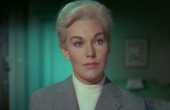kdaley
Contributing writer for The Artifice.
Junior Contributor II
- Lurker
- ?
- Articles
2 - Featured
2 - Comments
10
- Ext. Comments
6 - Processed
2 - Revisions
0
- Topics
1 - Topics Taken
1 - Notes
4
- Topics Proc.
1 - Topics Rev.
0
- Points
277 - Rank
X - Score
129
Latest Articles
Latest Topics
The Rise of the Political MelodramaIn recent years, there has been a marked shift from political shows of the late 90s/early 00s like The West Wing, which acted as an idealized representation of the political world. The bad guys always got what was coming to them, our team always won in the end, the couples always got together, etc. Now with the introduction and success of shows such as Scandal and House of Cards, viewers are seeing darker, jaded, terrifying underbellies of the political world where nothing is tied up neatly and oftentimes you are expected to side with the villains. Why have audiences shifted to this kind of entertainment? What is it about our current time, perhaps, that makes this shift believable? And how does a lighter show like Veep figure into this equation?
|
Latest Comments
| Emotional Control or Compromise?: On Mulvey and Vertigo | |
Going purely based on Alma Reville’s credits as listed on IMDb, she wasn’t technically involved in the making of Vertigo at all, although she is credited with the screenplay or adaptation for some of his earlier films such as Shadow of a Doubt and Suspicion. Whether she subconsciously/inadvertently/habitually influenced any of these characters, we can’t really know, but it’s still a wonderful question to think about. Although, upon further inspection, a quick Google search for “Alma Reville Vertigo” does bring up a very telling publicity still for Vertigo of Alma doting on Hitchcock as he sits at his desk poring over documents, perhaps the script. That simple photo may say quite a lot. 🙂 | Emotional Control or Compromise?: On Mulvey and Vertigo |
I’m actually an English/Creative Writing student, but I’ve taken a few film classes and it’s really become a passion of mine on the side. 😀 Thank you for the wonderfully kind words! | Emotional Control or Compromise?: On Mulvey and Vertigo |
“This is a movie that re-enacted its heroes’ escape from imprisonment and came out clean on the other side.” I had really never thought about the film in this way, but wow, that really encapsulates it! Your reading of Andy and Red’s relationship is really refreshing to me, particularly in your excellent analysis of the significant changes in each of Red’s parole board meetings. Those have always been some of my favorite moments in the film, and your reading of Red’s growth as profoundly influenced by Andy’s steadfast innocence and hope makes me feel the urge to find my DVD and give the film a new look. It’s always been one of my favorites; you’ve just made me appreciate the warm sincerity of this friendship even more. Great work! | The Shawshank Redemption: A Retrospective |
I think another character that works interestingly in relation to the ganger Doctor and Rory the Centurion is Jackson Lake from the 2008 Christmas special “The Next Doctor.” He is ostensibly the Doctor in that he fully “believes his own cover story” (ie. that he is The Doctor, with a TARDIS of a different kind and a sonic screwdriver that is sonic in only its ability to make sound). But what he doesn’t have access to, and what ultimately makes his cover story only that and not a real identity, is the memories that makes the Doctor innately the Doctor. When he does gain access to these memories through the Doctor’s intervention and the Cybertechnology infostamp, the illusion is shattered and his true identity is made readily known. This was a truly fascinating read and very accessible to someone who knows as little about philosophy as I do. Great work! | Doctor Who? Why the Question is More Important than the Answer |
I have always loved this novel and this is one of the many reasons why, but there’s something I can’t help but wonder now after reading this. The novel invites its readers to be on Quentin’s side so thoroughly – he is the protagonist, after all, even if it could be argued that Margo receives just as much development and depth, if not more so – that I have to wonder, couldn’t some readers possibly miss out on this total destruction of the MPDG and cling to the loyalty they feel to Q? I’ve unfortunately read some rather unfair responses to the novel that believe Margo’s selfishness is her defining quality and that therefore she embodies a whole other kind of reductive female trope. In any case, great work here! A truly thorough and well thought out analysis. | Paper Towns: John Green’s Deconstruction of the Manic Pixie Dream Girl |
I would say that it is definitely becoming more of a TV problem than a comic one, at least from what I’ve seen, and sadly my comic knowledge is fairly limited. But many popular shows, or at least shows with strong internet followings, are incredibly guilty of “fridging”: Supernatural, Agents of SHIELD, and Teen Wolf are all notorious for killing off women for shock value, but on Supernatural in particular, women rarely get a chance to live at all. The recent years of female-driven television shows are certainly starting to change things, but there’s still a long way to go. As to The Walking Dead in particular, it’s undeniable that the show is forced to rely on shock value and ratings boosted episodes more than the comic itself is, purely for commercial reasons. It’s a shame, too, because the comic basis doesn’t deserve to be misrepresented in such a way. | The Fridging Dead: The Walking Dead's Patriarchal Problem |
I think it’s particularly interesting to look at how blatantly sanitized the ending of the film is when compared with this shocking, chilling, and abrupt ending. It’s amazing to see how far behind literature Hollywood was, as the film industry was still (and, frequently, now even still is) stuck in the idealized idea of wrongs being punished, even if Blanche’s tragedy remains. Stella has much more agency at the film’s close as she leaves with their child and vows to “never go back,” while Stanley is left playing the games she refuses to take part in anymore. And yet this changes the world of Williams’ play so much that it does such a disservice to all of these characters and their period. The play’s inherently unresolved feeling is part of what makes it so powerful, and you’ve perfectly articulated that here. Great work! | A Modernist Trait in 'A Streetcar Named Desire': Happy Endings are Overrated |


I couldn’t agree more with you regarding appreciating the films but still understanding why and how they’re problematic and why that matters. I find that generally summarizes my feelings on much of Hitchcock’s body of work, many of which are some of my favorite films on the level of purely being wonderful works of cinema, but also because they are so interesting to analyze and discuss. 🙂 Thanks for the great comment!